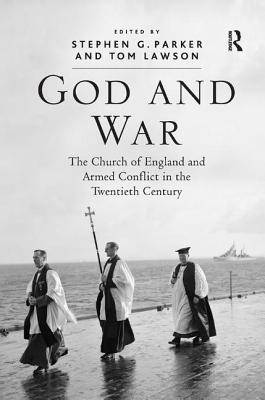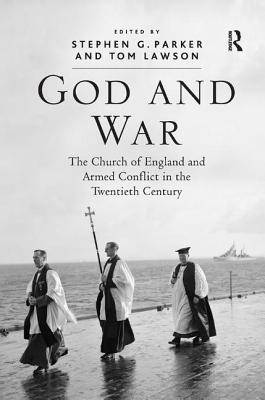
- Retrait gratuit dans votre magasin Club
- 7.000.000 titres dans notre catalogue
- Payer en toute sécurité
- Toujours un magasin près de chez vous
- Retrait gratuit dans votre magasin Club
- 7.000.0000 titres dans notre catalogue
- Payer en toute sécurité
- Toujours un magasin près de chez vous
God and War
The Church of England and Armed Conflict in the Twentieth Century
Tom Lawson
Livre relié | Anglais
290,45 €
+ 580 points
Format
Description
Despite narratives of secularization, it appears that the British public persistently pay attention to clerical opinion and continually resort to popular expressions of religious faith, not least in time of war. From the throngs of men who gathered to hear the Bishop of London preach recruiting sermons during the First World War, to the attention paid to Archbishop Williams' words of conscience on Iraq, clerical rhetoric remains resonant. For the countless numbers who attended National Days of Prayer during the Second World War, and for the many who continue to find the Remembrance Day service a meaningful ritual, civil religious events provide a source of meaningful ceremony and a focus of national unity. War and religion have been linked throughout the twentieth century and this book explores these links: taking the perspective of the 'home front' rather than the battlefield. Exploring the views and accounts of Anglican clerics on the issue of warfare and international conflict across the century, the authors explore the church's stance on the causes, morality and conduct of warfare; issues of pacifism, obliteration bombing, nuclear possession and deterrence, retribution, forgiveness and reconciliation, and the spiritual opportunities presented by conflict. This book offers invaluable insights into how far the Church influenced public appraisal of war whilst illuminating the changing role of the Church across the twentieth century.
Spécifications
Parties prenantes
- Auteur(s) :
- Editeur:
Contenu
- Nombre de pages :
- 250
- Langue:
- Anglais
Caractéristiques
- EAN:
- 9780754666929
- Date de parution :
- 14-11-12
- Format:
- Livre relié
- Format numérique:
- Genaaid
- Dimensions :
- 156 mm x 234 mm
- Poids :
- 535 g

Les avis
Nous publions uniquement les avis qui respectent les conditions requises. Consultez nos conditions pour les avis.






